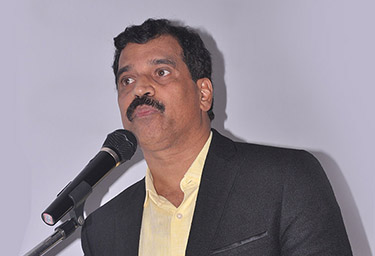
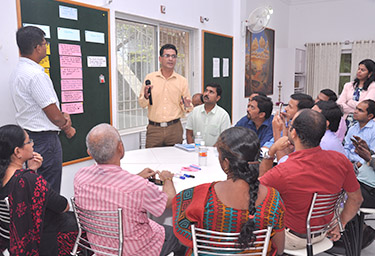
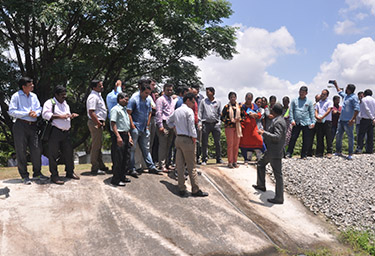
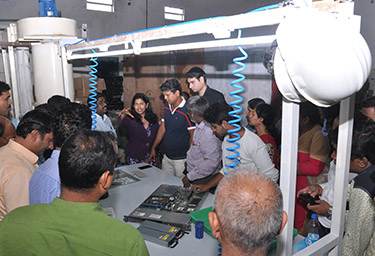
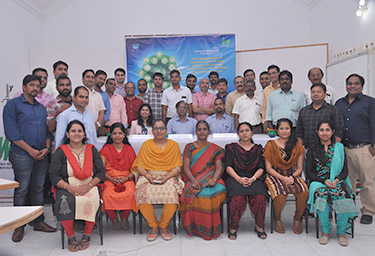
IIWM organized a five day residential training programme on “Effective Management of Hazardous Waste Including E-Waste Co-Processing and Co-Incineration- Hazardous Waste Rules & Field Visit” from 29th August to 2nd September 2017 at The School of Ancient Wisdom, Devanahalli, Bengaluru, Karnataka, as part of Environmental Training Unit-Central Pollution Control Board’s approved training programme. The overall objective of the training programme was to understand the legal perspective, technical details, environmental impact of implementation, resource efficiency, resource recovery of Hazardous waste, E-Waste and Co- Processing and finally to draw up an action plan to ensure effective waste management. Total number of 26 participants attended the programme.
The design of the training included classroom sessions combined with interactions, field visits and sessions at the plants and discussion forums. Resource persons spoke on various aspects of Hazardous Waste and EWaste. The aspects included adherence to 3R concept, difference in the old and new rules, environmental benefits of recycling, E-waste rules, collection and channelization of orphan products, salient features of Hazardous and Other Wastes (Management & Transboundary Movement) Rules, 2016, introduction of co-processing as a preferential mechanism over waste disposal, the storage of hazardous wastes, categorization of hazardous waste generators and the industrial processes which contribute to the hazardous waste through a flow chart.
The participants were taken on field visits to the Hazardous Waste Treatment Storage Disposal Facility at Dobbasapete, Tumkur District, E-Parisaraa Pvt. Ltd., the first E-Waste recycling facility in India, at Dobbasapete, Tumkur District, iSeven E-Waste recyclers, Magadi Road and E-nano Incintech, Harohalli Industrial Area, Ramanagara District, Karnataka. Group discussion was held among the participants and case studies were presented by them. The training programme concluded by providing key messages and recommendations, by formulating action plans for Hazardous Waste and E-Waste, by preparing and distributing the checklists to the participants.